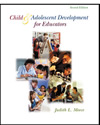| ability grouping | The practice in elementary school of grouping children according to their presumed academic ability; thought by some, when not used in conjunction with other grouping possibilities, to stigmatize and limit children's potential, particularly minority students, at an early age; see tracking.
|
 |
 |
 |
| automaticity | A factor in the development of children's attentional processes whereby familiarity with an object or task allows them to use it or perform without thinking.
|
 |
 |
 |
| elaboration | A memory encoding strategy in which one forms a personally meaningful mental image of items to be remembered.
|
 |
 |
 |
| episodic memory | Long-term memory storage of personal or autobiographical events or information, as well as information about the place, time, and order of events.
|
 |
 |
 |
| expert versus novice studies | A research paradigm that shows that more knowledgeable individuals are better able than novices to group or organize information in meaningful patterns suggests that advances in children's thinking processes are explained by both quantitative changes in their thinking processes and qualitative changes in how knowledge is organized.
|
 |
 |
 |
| heritability | The proportion of observed variance for a behavior that can be ascribed to genetic differences among individuals in a particular population; a population statistic that applies only to the sample from which it is derived.
|
 |
 |
 |
| intelligence quotient (IQ) | Represents a score obtained by comparing a child's mental age score with other children's of the same chronological age; currently determined through a deviation IQ score procedure.
|
 |
 |
 |
| long-term memory | A component of the information processing system into which information passes from short-term memory if it has been transformed or worked on in some personally meaningful way; has a large capacity and can store information indefinitely.
|
 |
 |
 |
| memory script | A mental representation of often repeated events in a child's daily life; a basic method for organizing and interpreting familiar experiences.
|
 |
 |
 |
| niche-picking | The tendency of older children to choose an environment that compliments their heredity as part of the active gene-environment effect described by Sandra Scarr and her associates.
|
 |
 |
 |
| recall memory | A form of information retrieval that involves the free recall of information without any cues or prompts to aid the process; requires more cognitive effort than recognition memory; children display better recall memory as they get older.
|
 |
 |
 |
| recognition memory | A basic form of information retrieval that involves recognizing a familiar stimulus when it is seen, heard, or experienced again; requires less cognitive effort than recall memory tasks; infants are able to display recognition memory by attending more to an unfamiliar than a familiar stimulus.
|
 |
 |
 |
| rehearsal | The first memory encoding strategy to be learned, involving the repetition of information over and over again to assist with recall.
|
 |
 |
 |
| selective attention | A development that allows children to focus their attention on task-relevant information and ignore irrelevant information so they use their cognitive resources more efficiently.
|
 |
 |
 |
| self-regulated learning | Children's increasing regulation and control of their own learning processes due to their development of their metacognitive knowledge.
|
 |
 |
 |
| semantic memory | Long-term memory storage of information, skills, and concepts of a general nature. Much of what is learned in school is included in semantic memory.
|
 |
 |
 |
| sensory register | According to information processing theories, the place where information is stored in the cognitive process for a few milliseconds until it is recognized or lost; each sense has its own sensory register.
|
 |
 |
 |
| short-term memory | A component of the information processing system into which information passes and is held for a brief period of time once it has been interpreted or encoded in terms of prior knowledge; also known as working memory; contrast with long-term memory.
|
 |
 |
 |
| stability of IQ | In intelligence theories, the degree to which an IQ score remains constant over time; central to the heritability of intelligence issue. For instance, if IQ is not stable over time, researchers could point to the influence of environmental factors in the outcome of people's intellectual potential.
|
 |
 |
 |
| tracking | The ongoing practice in middle and high schools of grouping students according to their presumed academic ability; thought by some to limit learning and achievement opportunities due to the kinds and quality of instruction and to students' resulting low motivation and self-esteem; see ability grouping.
|



 2002 McGraw-Hill Higher Education
2002 McGraw-Hill Higher Education